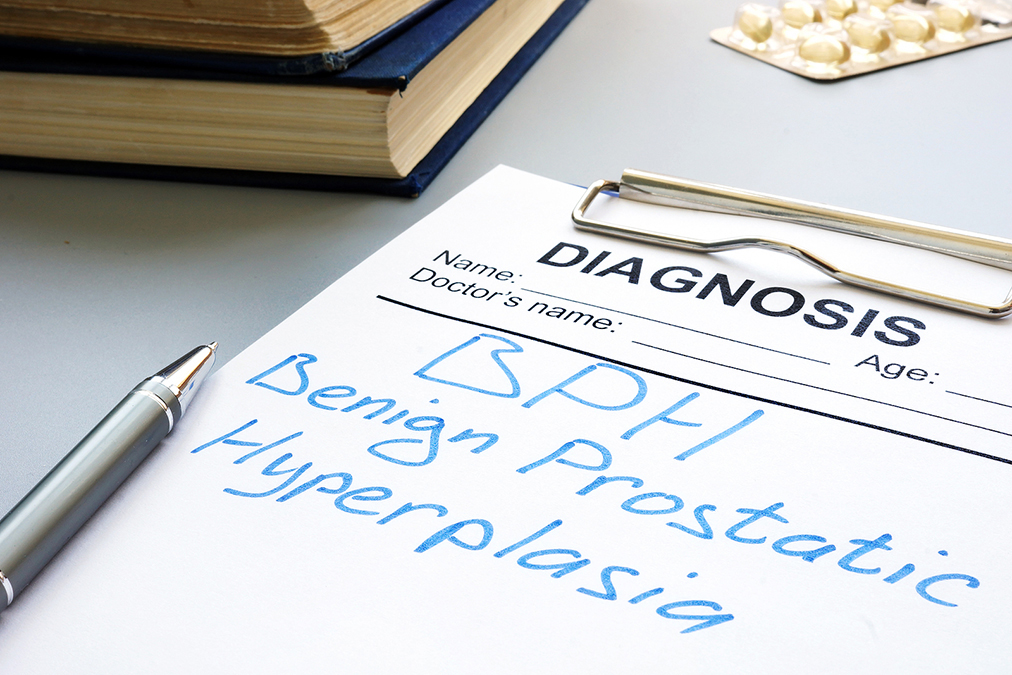 Almost all men develop benign prostatic hyperplasia (BPH) as they age. Which is why medical science has worked so hard to develop drugs to treat it.
Almost all men develop benign prostatic hyperplasia (BPH) as they age. Which is why medical science has worked so hard to develop drugs to treat it.
But like all drugs, BPH drugs come with possible side effects.
And a new study led by scientists from Queen’s University in Kingston, Ontario, reveals a terrifying side effect of two of the leading medications for BPH: a 22 percent increased risk of heart attack.
That’s a lot!
The researchers used administrative health databases to identify all men over the age of 66 who had been diagnosed with BPH between 2005 and 2015. In addition to their BPH statuses, the researchers also had access to their other health information and to their drug prescriptions.
Altogether, they used the records of 175,201 men. 8,339 of them were taking 5-alpha reductase inhibitors, 55,383 were taking alpha-blockers, 41,491 were taking a combination of the two, and the rest did not take any drugs at all.
Compared with the men who took no medication at all:
- 1. Those on alpha-blockers alone were 22 percent more likely to develop heart failure.
2. Those on a combination of the two were 16 percent more likely to have heart failure.
3. Those on 5-alpha reductase inhibitors alone had a nine percent increased risk of heart failure.
4. The risk of heart failure was higher for those who took the older nonselective alpha-blockers than for those who took the newer selective alpha-blockers, but an elevated risk existed for both.
5. The risk was the highest for men who had taken these drugs for 14 months or longer.
This means that if you’re suffering an enlarged prostate, you absolutely must seek natural methods to shrink it and get off your meds (with your doctor’s support).

 Overcoming IBD
Overcoming IBD Multiple Sclerosis
Multiple Sclerosis Banishing Bronchitis
Banishing Bronchitis Gum Disease Gone
Gum Disease Gone Overcoming Onychomycosis
Overcoming Onychomycosis Neuropathy No More
Neuropathy No More The Prostate Protocol
The Prostate Protocol Brain Booster
Brain Booster
 Ironbound
Ironbound
 Solution for Shingles
Solution for Shingles
 The Bone Density Solution
The Bone Density Solution
 The Ultimate Healing Protocol
The Ultimate Healing Protocol
 The Parkinson's Protocol
The Parkinson's Protocol
 The Chronic Kidney Disease Solution
The Chronic Kidney Disease Solution
 Overthrowing Anxiety
Overthrowing Anxiety The Fatty Liver Solution
The Fatty Liver Solution The Hypothyroidism Solution
The Hypothyroidism Solution
 The End of Gout
The End of Gout The Blood Pressure Program
The Blood Pressure Program
 The Oxigized Cholesterol Strategy
The Oxigized Cholesterol Strategy
 Stop Snoring And Sleep Apnea Program
Stop Snoring And Sleep Apnea Program
 The Arthritis Strategy
The Arthritis Strategy The Vertigo & Dizziness Program
The Vertigo & Dizziness Program The 3-Step Diabetes Strategy
The 3-Step Diabetes Strategy Hemorrhoids Healing Protocol
Hemorrhoids Healing Protocol The Erectile Dysfunction Master
The Erectile Dysfunction Master Weight Loss Breeze
Weight Loss Breeze The IBS Program
The IBS Program The Insomnia Program
The Insomnia Program The Migraine and Headache Program
The Migraine and Headache Program The Neck Pain Solution
The Neck Pain Solution The Menopause Solution
The Menopause Solution The Ejaculation Master
The Ejaculation Master The TMJ Solution
The TMJ Solution The Acid Reflux Solution
The Acid Reflux Solution The Fibromyalgia Solution
The Fibromyalgia Solution The Psoriasis Strategy
The Psoriasis Strategy